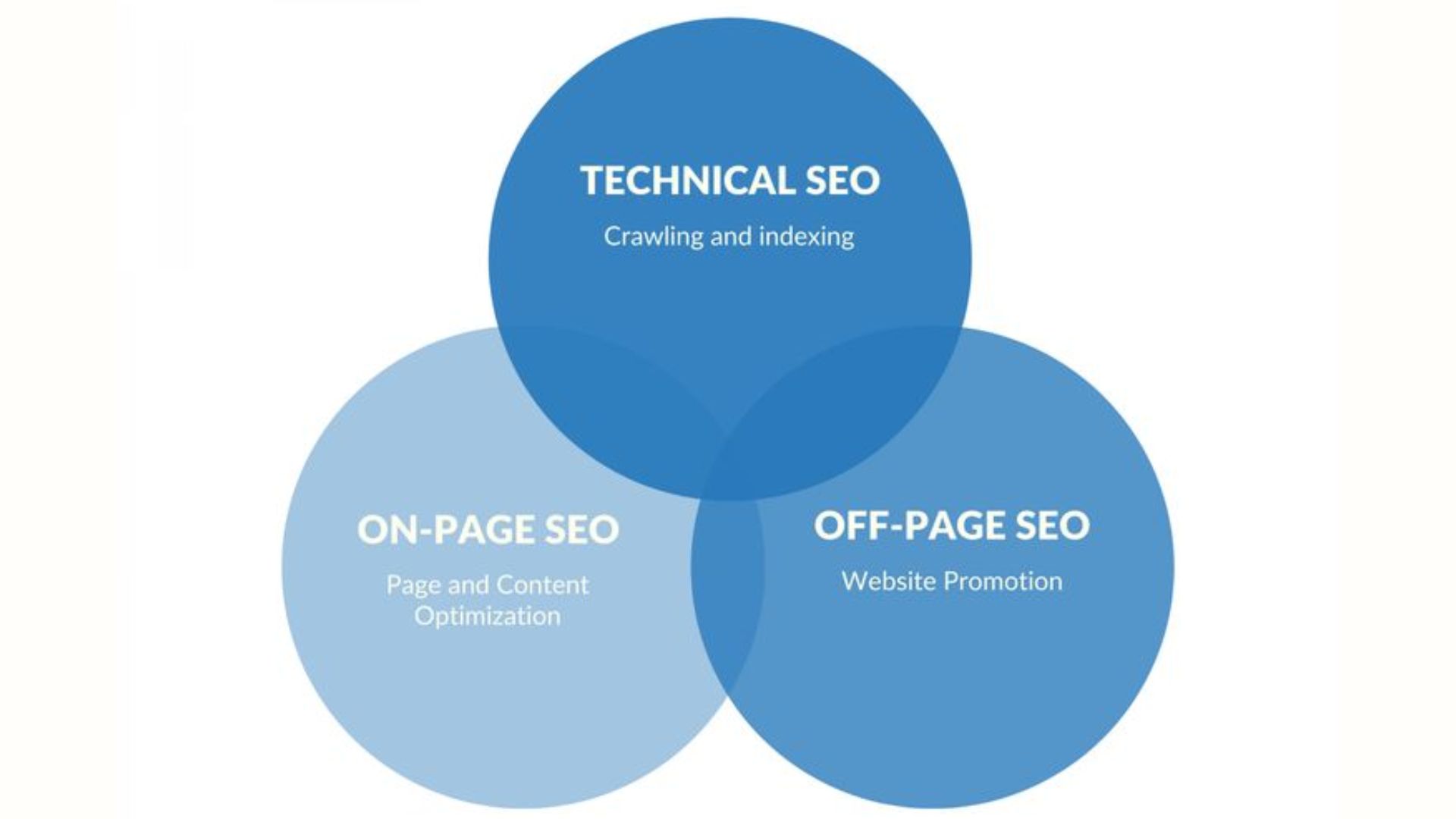Introduction
Search Engine Optimization (SEO) has become a fundamental part of digital marketing strategies for businesses of all sizes. With millions of searches performed every day, SEO helps your website become more visible, drive organic traffic, and improve overall brand visibility online.
In this blog post, we’ll dive into the basics of SEO, explain why it’s important, discuss various aspects of SEO services, and guide you on how to improve your search engine rankings. We’ll also take a specific look at SEO services in Texas, giving you a geographic perspective of why businesses in Texas should pay special attention to SEO strategies.
What is SEO (Search Engine Optimization)?
SEO stands for Search Engine Optimization. It’s the process of optimizing your website to improve its visibility in search engines like Google, Bing, and Yahoo. The better your SEO, the higher your website will rank on search engine result pages (SERPs), which increases the chances of people clicking on your website. Also, learn more about the SEO process.
There are three primary types of SEO:
- On-page SEO: Focuses on optimizing individual web pages through elements like content, meta tags, and keyword placement.
- Off-page SEO: Involves activities that take place outside your website to improve its authority, such as link building.
- Technical SEO: Ensures that search engines can effectively crawl and index your website, emphasizing aspects like site speed, mobile-friendliness, and structured data.
Key Components of SEO
- Keyword Research: Identifying relevant and high-traffic keywords for your business.
- Content Optimization: Crafting engaging, informative, and SEO-friendly content.
- Technical Optimization: Ensuring your website is fast, secure, and mobile-responsive.
- Link Building: Acquiring backlinks from reputable websites to boost site authority.
- User Experience (UX): Enhancing website design and navigation to improve user engagement.
Why is SEO Important?
SEO is essential for several reasons:
- Organic Traffic Growth: SEO drives organic traffic, meaning visitors come to your website naturally through search engine results.
- Cost-Effective Marketing: Unlike paid ads, SEO is free—though it requires time and effort.
- Builds Credibility: Users often perceive websites that rank higher on Google as more trustworthy.
- Long-Term Results: While it takes time, a well-executed SEO strategy provides lasting visibility.
PRO TIP: Invest in a balanced combination of on-page SEO and technical SEO to optimize content relevance and website performance. This will give you a competitive advantage in search results. Also followed by various texas seo companies.
The SEO Market: Understanding the Numbers
The global SEO services market was valued at approximately $50 billion in 2021 and is projected to grow at a compound annual growth rate (CAGR) of 15.7% from 2022 to 2030. As businesses recognize the importance of ranking well in search engines, demand for SEO services continues to soar. According to data, 68% of online experiences begin with a search engine, making SEO crucial for visibility.
- 57% of B2B marketers say SEO generates more leads than any other marketing initiative.
- 75% of users never scroll past the first page of search results, emphasizing the importance of top rankings.
- Businesses that optimize for mobile SEO see a 12% increase in traffic.
Types of SEO Services
When considering SEO services, there are several options available depending on your goals and budget:
- Local SEO: Targets specific geographic areas to attract local customers. This is ideal for businesses like restaurants, plumbers, and retailers.
- E-commerce SEO: Optimizes online stores to rank for product-related keywords and categories.
- Technical SEO Services: Focuses on improving website speed, mobile optimization, and fixing crawl errors to enhance site performance.
- Content SEO Services: Involves creating high-quality, SEO-optimized content that ranks well in SERPs and drives organic traffic.
- Link-Building Services: Helps improve your website’s domain authority by acquiring backlinks from reputable websites.
SEO Service Comparison
| Service Type | Focus Area | Best For | Investment |
| Local SEO | Geo-targeted keywords | Small and local businesses | $$ |
| E-commerce SEO | Product and category optimization | Online retailers | $$$ |
| Technical SEO | Site speed, mobile-friendliness | Websites needing structural improvements | $$ |
| Content SEO | Blog posts, landing pages, product descriptions | Websites focusing on inbound marketing | $ |
| Link Building | Backlink acquisition | Websites needing domain authority boost | $$$ |
How to Conduct an SEO Audit
An SEO audit is the first step in identifying the strengths and weaknesses of your website. By performing an audit, you can improve your site’s technical performance, content quality, and authority. Here’s a step-by-step guide to conducting an SEO audit:
- Step 1: Check Site Performance – Use tools like Google PageSpeed Insights to evaluate loading times and fix slow pages.
- Step 2: Analyze Keywords – Look at the keywords your website is currently ranking for and identify potential new keywords.
- Step 3: Examine Content – Make sure your content is optimized with relevant keywords, has good readability, and addresses user intent.
- Step 4: Evaluate Backlinks – Use tools like Ahrefs to check the quality and quantity of your backlinks.
- Step 5: Fix Technical Issues – Review for broken links, crawl errors, and mobile optimization.
PRO TIP: Conduct SEO audits every 6 months to stay on top of changes in search engine algorithms and maintain website performance.
SEO Services in Texas: A Geographic Perspective
For businesses in Texas, SEO is especially crucial given the size and competitiveness of the market. The state has a thriving business ecosystem, particularly in cities like Houston, Dallas, Austin, and San Antonio, which are home to numerous industries ranging from tech startups to healthcare giants. Implementing local SEO strategies can help Texas businesses stand out in their specific region.
Local SEO ensures that your business appears in local search results when potential customers search for services “near me” or by city name (e.g., “Texas SEO services”). Google My Business optimization, local citations, and creating location-specific landing pages are key strategies to target local customers.
For instance, an SEO company in Texas might optimize content to rank for keywords like “SEO services in Austin” or “Dallas SEO company” to capture more local search traffic. Texas businesses can also benefit from their large local market by using localized content marketing strategies.
PRO TIP: In Texas, focus on hyper-local SEO by including not only city-specific but neighborhood-specific keywords, which can drastically improve visibility for local searches.
Best Practices for Successful SEO
To achieve long-term SEO success, follow these best practices:
- Focus on User Intent: Understand what your audience is searching for and tailor your content to meet those needs.
- Optimize for Mobile: Ensure your website is mobile-friendly, as mobile users make up more than half of internet traffic.
- Improve Page Speed: Slow websites lead to higher bounce rates. Use tools like Google PageSpeed Insights to make necessary improvements.
- Create High-Quality Content: Content is king in SEO. Ensure your content is informative, valuable, and regularly updated.
- Leverage Social Media: While social signals don’t directly impact SEO, sharing your content on social media can increase visibility and drive more traffic.
Emerging SEO Trends to Watch
SEO is constantly evolving, and staying ahead of emerging trends can give your business a competitive edge. Some of the most prominent trends include:
- Voice Search Optimization: As voice search usage grows, optimizing for conversational keywords and question-based queries will become more important.
- Video SEO: Google now includes video content in search results, making it crucial to optimize video titles, descriptions, and tags for SEO.
- AI in SEO: AI tools like RankBrain are helping Google better understand user queries and deliver more accurate results. Ensure your content is optimized for user intent and relevance.
Key Takeaways
- SEO is an essential digital marketing strategy that drives organic traffic and improves visibility on search engines.
- Conducting regular SEO audits helps identify areas for improvement and optimize your site for better rankings.
- Texas businesses can benefit significantly from local SEO strategies due to the state’s large and competitive market.
- Following SEO best practices such as improving mobile experience, page speed, and creating high-quality content will yield long-term results.
- Stay ahead of emerging trends like voice search and AI to maintain your competitive edge.
Conclusion
In today’s competitive digital landscape, understanding and implementing SEO is key to building a strong online presence. Whether you are a small business in Texas or a global brand, investing in SEO can provide sustainable growth and long-term success. By following best practices, staying up-to-date with trends, and utilizing SEO services when necessary, you’ll be well on your way to boosting your search engine rankings and driving valuable traffic to your site.
People also ask (FAQs)
SEO (Search Engine Optimization) is the process of improving your website’s visibility on search engines like Google. It’s important because higher visibility leads to more organic traffic, which can result in more leads and sales. SEO also helps establish credibility, builds trust with your audience, and provides long-term benefits compared to paid advertising.
Local SEO targets geographic-specific searches, which is especially useful for Texas businesses. It helps your business show up in local searches like “SEO services near me” or “Texas SEO company,” driving more local traffic and foot traffic to your business. This is particularly useful for industries such as restaurants, retailers, and service providers in competitive markets like Austin, Houston, and Dallas.
SEO is a long-term strategy, and results typically take 3 to 6 months, depending on the competitiveness of your industry and the quality of your SEO efforts. However, factors like keyword competitiveness, content quality, and backlink strength also impact the timeline. Patience is key, as SEO builds sustainable, organic traffic over time.
SEO focuses on organic traffic by optimizing your website to rank higher in search results, while SEM (Search Engine Marketing) includes both SEO and paid advertising like Google Ads. SEO provides long-term visibility and growth, whereas SEM provides immediate visibility through paid ads but stops driving traffic once the ad budget runs out.
Keyword research helps identify the terms and phrases your target audience is searching for. By optimizing your content with relevant, high-traffic keywords, you increase your chances of ranking higher in search results. Targeting the right keywords ensures your website attracts the right kind of traffic, increasing lead generation and conversions.
Common SEO mistakes include keyword stuffing, ignoring mobile optimization, neglecting page speed, and failing to conduct regular audits. To avoid these, focus on creating high-quality content, optimizing your site for mobile devices, improving load times, and conducting periodic SEO audits to stay ahead of algorithm updates and technical issues.
To optimize for voice search, focus on conversational, long-tail keywords, and question-based queries like “What is the best SEO service in Texas?” Ensure your content provides direct, concise answers to common questions. Also, optimize for local searches by including phrases like “near me” and making sure your business is listed in Google My Business.
An SEO audit evaluates your website’s current SEO performance. It helps identify technical issues, keyword opportunities, and areas for improvement in content and backlink quality. Conducting regular audits ensures that your site remains optimized for search engines and provides users with a seamless experience, which can improve rankings over time.
Texas SEO services focus on the unique geographic and competitive landscape of the state. Given its large and diverse market, businesses in Texas need to prioritize local SEO strategies to capture search traffic from major cities like Austin, Houston, and Dallas. Additionally, Texas SEO often includes specialized strategies for various industries like tech, healthcare, and retail, which are prominent in the state.
While basic SEO practices like keyword research, content creation, and on-page optimization can be done in-house, hiring a professional SEO agency is recommended for businesses looking for comprehensive strategies. Professionals provide expertise in technical SEO, backlink building, and keeping up with algorithm changes, helping you achieve faster, long-lasting results.











